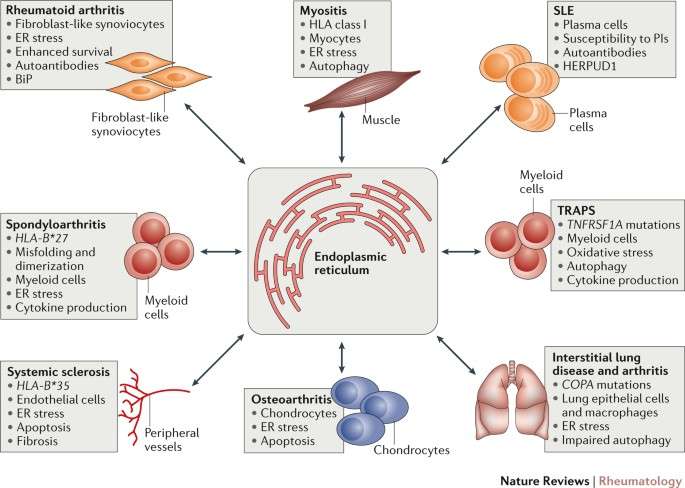Chronic stress puts your health at risk
Chronic stress can wreak havoc on your mind and body. Take steps to control your stress.
By Mayo Clinic Staff
Your body is hard-wired to react to stress in ways meant to protect you against threats from predators and other aggressors. Such threats are rare today, but that doesn’t mean that life is free of stress.
On the contrary, you likely face many demands each day, such as taking on a huge workload, paying the bills and taking care of your family. Your body treats these so-called minor hassles as threats. As a result, you may feel as if you’re constantly under attack. But you can fight back. You don’t have to let stress control your life.
Understanding the natural stress response
When you encounter a perceived threat — such as a large dog barking at you during your morning walk — your hypothalamus, a tiny region at your brain’s base, sets off an alarm system in your body. Through a combination of nerve and hormonal signals, this system prompts your adrenal glands, located atop your kidneys, to release a surge of hormones, including adrenaline and cortisol.
Adrenaline increases your heart rate, elevates your blood pressure and boosts energy supplies. Cortisol, the primary stress hormone, increases sugars (glucose) in the bloodstream, enhances your brain’s use of glucose and increases the availability of substances that repair tissues.
Cortisol also curbs functions that would be nonessential or harmful in a fight-or-flight situation. It alters immune system responses and suppresses the digestive system, the reproductive system and growth processes. This complex natural alarm system also communicates with the brain regions that control mood, motivation and fear.
When the natural stress response goes wild
The body’s stress response system is usually self-limiting. Once a perceived threat has passed, hormone levels return to normal. As adrenaline and cortisol levels drop, your heart rate and blood pressure return to baseline levels, and other systems resume their regular activities.
But when stressors are always present and you constantly feel under attack, that fight-or-flight reaction stays turned on.
The long-term activation of the stress response system and the overexposure to cortisol and other stress hormones that follows can disrupt almost all your body’s processes. This puts you at increased risk of many health problems, including:
- Anxiety
- Depression
- Digestive problems
- Headaches
- Muscle tension and pain
- Heart disease, heart attack, high blood pressure and stroke
- Sleep problems
- Weight gain
- Memory and concentration impairment
That’s why it’s so important to learn healthy ways to cope with your life stressors.
Why you react to life stressors the way you do
Your reaction to a potentially stressful event is different from anyone else’s. How you react to your life stressors is affected by such factors as:
- Genetics. The genes that control the stress response keep most people on a fairly steady emotional level, only occasionally priming the body for fight or flight. Overactive or underactive stress responses may stem from slight differences in these genes.
- Life experiences. Strong stress reactions sometimes can be traced to traumatic events. People who were neglected or abused as children tend to be particularly vulnerable to stress. The same is true of airplane crash survivors, military personnel, police officers and firefighters, and people who have experienced violent crime.
You may have some friends who seem relaxed about almost everything and others who react strongly to the slightest stress. Most people react to life stressors somewhere between those extremes.
Learning to react to stress in a healthy way
Stressful events are facts of life. And you may not be able to change your current situation. But you can take steps to manage the impact these events have on you.
You can learn to identify what causes you stress and how to take care of yourself physically and emotionally in the face of stressful situations.
Stress management strategies include:
- Eating a healthy diet, getting regular exercise and getting plenty of sleep
- Practicing relaxation techniques such as yoga, deep breathing, massage or meditation
- Keeping a journal and writing about your thoughts or what you’re grateful for in your life
- Taking time for hobbies, such as reading, listening to music, or watching your favorite show or movie
- Fostering healthy friendships and talking with friends and family
- Having a sense of humor and finding ways to include humor and laughter in your life, such as watching funny movies or looking at joke websites
- Volunteering in your community
- Organizing and prioritizing what you need to accomplish at home and work and removing tasks that aren’t necessary
- Seeking professional counseling, which can help you develop specific coping strategies to manage stress
Avoid unhealthy ways of managing your stress, such as using alcohol, tobacco, drugs or excess food. If you’re concerned that your use of these products has increased or changed due to stress, talk to your doctor.
The rewards for learning to manage stress can include peace of mind, less stress and anxiety, a better quality of life, improvement in conditions such as high blood pressure, better self-control and focus, and better relationships. And it might even lead to a longer, healthier life.
There is a problem with information submitted for this request. Review/update the information highlighted below and resubmit the form.
From Mayo Clinic to your inbox
Sign up for free, and stay up to date on research advancements, health tips and current health topics, like COVID-19, plus expertise on managing health.
ErrorEmail field is required
ErrorInclude a valid email address
To provide you with the most relevant and helpful information, and understand which information is beneficial, we may combine your email and website usage information with other information we have about you. If you are a Mayo Clinic patient, this could include protected health information. If we combine this information with your protected health information, we will treat all of that information as protected health information and will only use or disclose that information as set forth in our notice of privacy practices. You may opt-out of email communications at any time by clicking on the unsubscribe link in the e-mail.
Thank you for subscribing!
You’ll soon start receiving the latest Mayo Clinic health information you requested in your inbox.
Sorry something went wrong with your subscription
Please, try again in a couple of minutes
- How stress affects your health. American Psychological Association. https://www.apa.org/topics/stress/health. Accessed March 19, 2021.
- Stress effects on the body. American Psychological Association. https://www.apa.org/topics/stress/body. Accessed March 19, 2021.
- Lower stress: How does stress affect the body? American Heart Association. https://www.heart.org/en/healthy-living/healthy-lifestyle/stress-management/lower-stress-how-does-stress-affect-the-body. Accessed March 18, 2021.
- Stress and your health. U.S. Department of Health & Human Services. https://www.womenshealth.gov/mental-health/good-mental-health/stress-and-your-health. Accessed March 18, 2021.
- AskMayoExpert. Stress management and resiliency (adult). Mayo Clinic. 2019.
- Seaward BL. Essentials of Managing Stress. 5th ed. Jones & Bartlett Learning; 2021.
- Seaward BL. Managing Stress: Skills for Self-Care, Personal Resiliency and Work-Life Balance in a Rapidly Changing World. 10th ed. Jones & Bartlett Learning; 2022.
- Olpin M, et al. Stress Management for Life. 5th ed. Cengage Learning; 2020.
- Hall-Flavin DK (expert opinion). Mayo Clinic. March 23, 2021.
See more In-depth
You’re sitting in traffic, late for an important meeting, watching the minutes tick away. Your hypothalamus, a tiny control tower in your brain, decides to send out the order: Send in the stress hormones! These stress hormones are the same ones that trigger your body’s “fight or flight” response. Your heart races, your breath quickens, and your muscles ready for action. This response was designed to protect your body in an emergency by preparing you to react quickly. But when the stress response keeps firing, day after day, it could put your health at serious risk.

Share on Pinterest
Stress is a natural physical and mental reaction to life experiences. Everyone expresses stress from time to time. Anything from everyday responsibilities like work and family to serious life events such as a new diagnosis, war, or the death of a loved one can trigger stress. For immediate, short-term situations, stress can be beneficial to your health. It can help you cope with potentially serious situations. Your body responds to stress by releasing hormones that increase your heart and breathing rates and ready your muscles to respond.
Yet if your stress response doesn’t stop firing, and these stress levels stay elevated far longer than is necessary for survival, it can take a toll on your health. Chronic stress can cause a variety of symptoms and affect your overall well-being. Symptoms of chronic stress include:
- irritability
- anxiety
- depression
- headaches
- insomnia
Central nervous and endocrine systems
Your central nervous system (CNS) is in charge of your “fight or flight” response. In your brain, the hypothalamus gets the ball rolling, telling your adrenal glands to release the stress hormones adrenaline and cortisol. These hormones rev up your heartbeat and send blood rushing to the areas that need it most in an emergency, such as your muscles, heart, and other important organs.
When the perceived fear is gone, the hypothalamus should tell all systems to go back to normal. If the CNS fails to return to normal, or if the stressor doesn’t go away, the response will continue.
Chronic stress is also a factor in behaviors such as overeating or not eating enough, alcohol or drug abuse, and social withdrawal.
Respiratory and cardiovascular systems
Stress hormones affect your respiratory and cardiovascular systems. During the stress response, you breathe faster in an effort to quickly distribute oxygen-rich blood to your body. If you already have a breathing problem like asthma or emphysema, stress can make it even harder to breathe.
Under stress, your heart also pumps faster. Stress hormones cause your blood vessels to constrict and divert more oxygen to your muscles so you’ll have more strength to take action. But this also raises your blood pressure.
As a result, frequent or chronic stress will make your heart work too hard for too long. When your blood pressure rises, so do your risks for having a stroke or heart attack.
Digestive system
Under stress, your liver produces extra blood sugar (glucose) to give you a boost of energy. If you’re under chronic stress, your body may not be able to keep up with this extra glucose surge. Chronic stress may increase your risk of developing type 2 diabetes.
The rush of hormones, rapid breathing, and increased heart rate can also upset your digestive system. You’re more likely to have heartburn or acid reflux thanks to an increase in stomach acid. Stress doesn’t cause ulcers (a bacterium called H. pylori often does), but it can increase your risk for them and cause existing ulcers to act up.
Stress can also affect the way food moves through your body, leading to diarrhea or constipation. You might also experience nausea, vomiting, or a stomachache.
Muscular system
Your muscles tense up to protect themselves from injury when you’re stressed. They tend to release again once you relax, but if you’re constantly under stress, your muscles may not get the chance to relax. Tight muscles cause headaches, back and shoulder pain, and body aches. Over time, this can set off an unhealthy cycle as you stop exercising and turn to pain medication for relief.
Sexuality and reproductive system
Stress is exhausting for both the body and mind. It’s not unusual to lose your desire when you’re under constant stress. While short-term stress may cause men to produce more of the male hormone testosterone, this effect doesn’t last.
If stress continues for a long time, a man’s testosterone levels can begin to drop. This can interfere with sperm production and cause erectile dysfunction or impotence. Chronic stress may also increase risk of infection for male reproductive organs like the prostate and testes.
For women, stress can affect the menstrual cycle. It can lead to irregular, heavier, or more painful periods. Chronic stress can also magnify the physical symptoms of menopause.
What are the causes of inhibited sexual desire? »
Immune system
Stress stimulates the immune system, which can be a plus for immediate situations. This stimulation can help you avoid infections and heal wounds. But over time, stress hormones will weaken your immune system and reduce your body’s response to foreign invaders. People under chronic stress are more susceptible to viral illnesses like the flu and the common cold, as well as other infections. Stress can also increase the time it takes you to recover from an illness or injury.
Keep reading: Learn tips on managing your stress »




